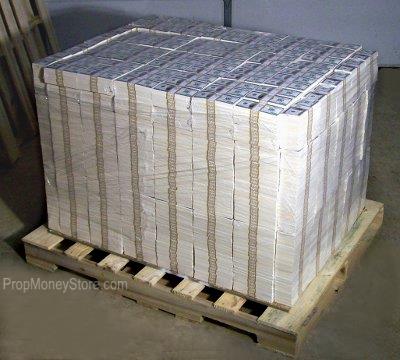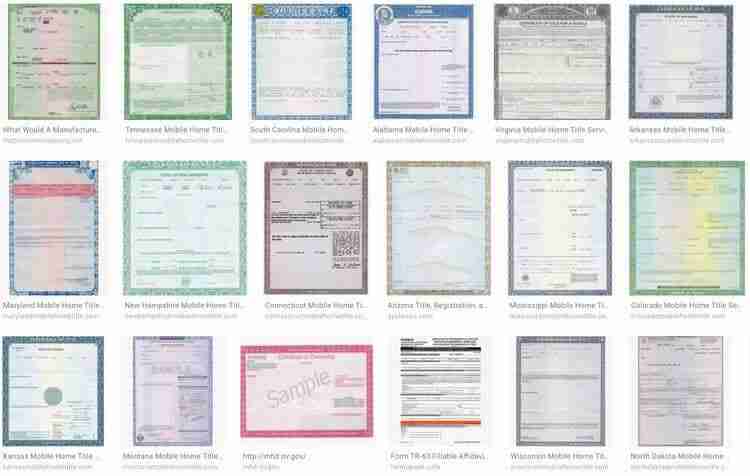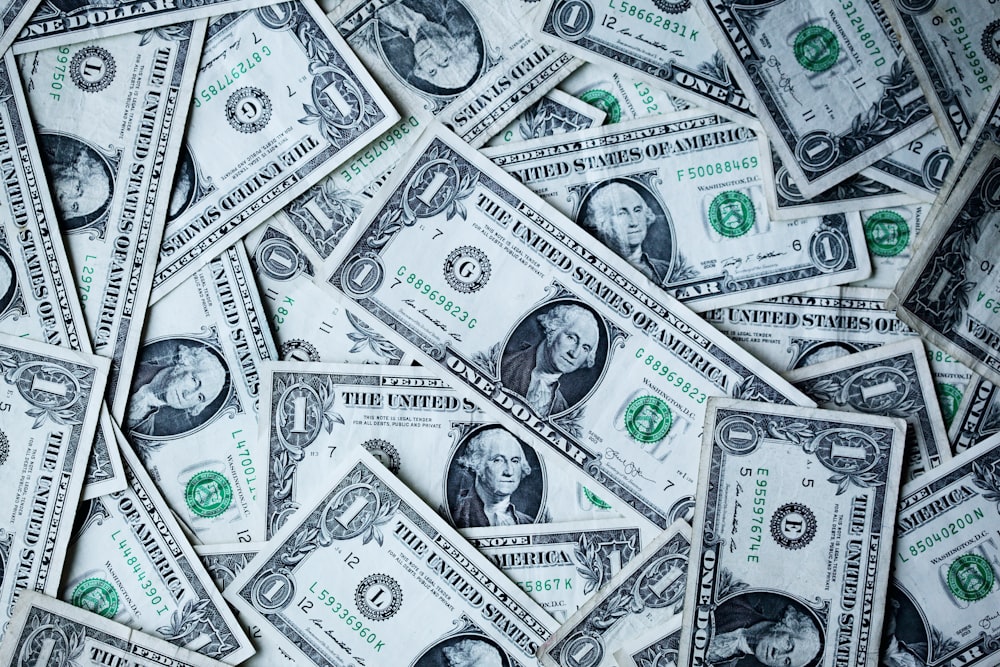Our country club invites speakers to give presentations about various, interesting subjects.
I could volunteer to present my friends and neighbors with information they don’t have, and should have, and would find interesting.
Sadly, I’ve found that most people want to hear what they already believe, and they tend to become angry at anyone who tells them otherwise.
What follows is the text of a speech I never will give to my friends at the club because they probably won’t believe me, and at my age, who needs the aggravation?
…………………………………………………………………………………………………………………………………………………….
TEN THINGS YOU ABSOLUTELY DON’T KNOW ABOUT OUR ECONOMY — BUT YOU SHOULD
I’m going to tell you some things about our economy, and specifically about money — a subject which you already understand quite well because you have lots of it. 
But I’m going to tell you ten things you didn’t know.
The vast majority of you own more than a million U.S. dollars, which used to be a much-respected sum, but no longer is.
Because you own so many dollars, let me ask you this: What does a U.S. dollar look like? For instance, what is the color of the U.S. dollar?
Green, right?
And what is a dollar made of? How big is it?
Paper and about 6 inches?
And what is the purpose of dollars?
They are a medium of exchange and a measure of value or wealth. OK?
And, if the purpose of dollars is, for example, to act as a medium of exchange, that means you exchange dollars for the goods and services you want, right?
.

So, for instance, let’s say you walk into a car dealership to buy a car.
After proper negotiation, you give the dealer a giant stack, let’s say 75,000, of those green, 6-inch pieces of paper, and he gives you the car keys.
That’s the way it works, right? You schlep big stacks of paper around?
No?? It doesn’t work that way??
Actually, to buy that car, you sign some papers that probably are not green and don’t measure 6 inches.
And in fact, I venture to guess, that while the vast majority of your life’s purchases do involve dollars, they do not involve green pieces of paper.
You gave that car dealer $75,000. So, let me ask you again, What did those dollars — the dollars you gave the dealer — look like?
The answer is: Those dollars didn’t look like anything. They are bookkeeping entries.
The U.S. dollar is not a physical entity. The dollar is a legal entity. It is a group of laws. You can’t see, smell, taste, feel, or hear a dollar any more than you can see, smell, taste, feel, or hear a law.

That green piece of paper is not a dollar; it is a dollar bill. It represents the ownership of a dollar. Just as a car title is not a car, and a house title is not a house, a dollar bill is not a dollar.
A dollar bill is a bearer title to a dollar.
A dollar is a legal entity that exists only in law books. And if there is one thing you know about governments and laws it’s this: A government can make as many laws as it wishes. A government cannot run short of laws.
Before the year 1780, there were no U.S. dollars. Then, as if by magic, the U.S government created from thin air, a bunch of laws, and among them were laws that created from thin air, millions of dollars.
And not only did the government laws and dollars from thin air, but it created other laws from thin air that gave those dollars a value relative to ounces of silver.
In 1792 the US Congress passed the Coinage Act, which states that the U.S. dollar coin must contain four hundred and sixteen grains of standard silver.
And ever since, the U.S. government has continued to create more and more laws, and more and more dollars from thin air, and has continued to pass laws changing the value of U.S. dollars.
All of this was arbitrary, and arbitrarily changed many times, and it demonstrated the unique sovereign power of the federal government over the U.S. dollar.
The American government proved what so many other governments had proved and continue to prove to this day:
The U.S. federal government has the unlimited ability to pass laws, which means it has the unlimited ability to create its sovereign currency, the U.S. dollar and the unlimited ability to give the dollar any value it wishes.
The term for that is Monetary Sovereignty.
You now know more than 90% of the people — make that 99% of the people — in America.
You know more than most of the media. You know more than most of the politicians. You even know more than most of the economists.
Why do I say that? Because every day, the media, the politicians and the economists tell you the U.S. federal debt is too high. It’s “unsustainable.”
What does “unsustainable” mean? It means the U.S. government will not have enough dollars to pay off its debt.
It even may mean the U.S. government won’t be able to make payments against its debt or even to cover the interest payments.
And it might mean that the government will have to raise taxes on you and your children to obtain dollars to pay its debt.
And as you now have learned, that is all nonsense.
Think about it, and answer for yourself these two questions:
- How can a government that has the unlimited ability to create dollars from thin air, run short of dollars to pay its debts? (It can’t.)
- Does a government having the unlimited dollars to pay its debts, need to ask you or your children for tax dollars? (No.)
What? The federal government doesn’t need your tax dollars?
That’s right folks, those tax dollars you sweat and strain to obtain, and then send to the government — the U.S. government does not need those tax dollars.
In fact, the federal government destroys your tax dollars upon receipt.
Really.
Think of it this way. Have you ever played the board game, Monopoly?
It usually is played with four players, one of whom also serves as the Bank.
Think of the Bank as the federal government and the players as the U.S. economy.

According to the game rules, or laws, the Bank starts the game by distributing a certain amount of Monopoly money to each player.
One time, my friends and I wished to play Monopoly, but when we opened the box we discover the board, some game tokens, and some instruction cards, but no Monopoly dollars inside.
What would you have done?
No problem. The Bank simply took a sheet of paper and drew four columns, one for each player.
Like the U.S. federal government, the Bank created dollars out of thin air, simply by writing numbers into each player’s column.
The Bank has no source of dollars other than the rules or laws of the game.
Obviously, the Bank could have written any starting number at the top of each column.
Like the federal government, the Monopoly Bank has the unlimited power to create Monopoly dollars.
Then, as the game progressed, the Bank kept paying out and receiving dollars.
When the Bank paid out more dollars than it received, this was a deficit for the Bank and a surplus for the players — that is, a surplus for the economy — just like in the real world.
Now here comes the interesting part: At various points in the game, the rules require players to pay money to the Bank, either for properties, for fines, or for taxes.
Let’s say a player must pay a $100 tax to the Bank. In that case, 100 was deducted from that player’s column.
But where did the $100 go? The Bank had no column. The $100 simply disappeared. Those tax dollars were destroyed, just like in the real world.
That is why, if you ask someone, “How much money does the federal government have,” you will not get an answer. The federal government has infinite money.
If the federal government doesn’t need or use tax dollars, why does it collect them? Two reasons:
- To control the economy. It taxes what it wishes to limit and it gives tax breaks to what and whom it wishes to reward.
- To control the middle- and lower-income groups. Taxes provide a handy excuse for limiting benefits and preventing the non-rich from asking for benefits.
Why does the federal government wish to limit benefits to the non-rich?

The rich run America.
Indeed the rich run the world.
“Rich” is a comparative word. You are rich if you have $100 and everyone else has $1, but you are poor if you have $1 million and everyone else has $10 million.
The rich wish to be richer which requires widening the gap between them and the non-rich.
The gap can be widened not only by giving more to the rich, but also by giving less to the non-rich.
The desire to widen the gap between those below, on any economic measure, and to narrow the gap above, is called Gap Psychology.
The rich are motivated by Gap Psychology.
The rich want the gap between you and them to widen.
That is why you are told falsely that Medicare for All, and Social Security for All, and the growing debt all are unsustainable.
And as for that so-called “debt,” it isn’t even a debt — at least not in the way you usually think about debt.
Loans are made to those who need money.
But the federal government has no need to borrow money. The U.S. federal government already has infinite money.
Those so-called “loans” to the federal government actually are deposits into T-bill, T-note, and T-bond accounts held at the Federal Reserve Bank.
They are deposits, similar to your bank savings account deposit.
When China “lends” to the U.S government, it actually opens T-bill accounts and directs dollars from its checking account at the Federal Reserve Bank to be deposited into its T-bill accounts, also at the Federal Reserve Bank.
There China’s dollars stay, in its T-bill accounts, accumulating interest until the T-bills mature.
Then, how does the government pay off its Chinese loans? It merely sends the dollars that are sitting in China’s T-bill accounts, back to China’s checking account.
It’s a simple dollar transfer. It does this every day.
No tax dollars involved. No burden on the government or future generations.
If the government doesn’t use the dollars in Treasury accounts, why then does the government issue T-bills, notes, and bonds? Two primary reasons:
- To provide a safe parking place for unused dollars, which stabilizes the dollar, and
- To assist the Federal Reserve in controlling interest rates
In summary, and contrary to what you have been told, the federal debt is not a burden on anyone, not on you, not on your grandchildren and not on the government.
Why is this important?
Well, for one thing, you repeatedly have been told that the Social Security Trust Fund is running out of money, and to save Social Security, we must either increase FICA taxes or reduce benefits.
In fact, benefits already have been reduced by increasing the qualifying ages.
But the U.S. government has the unlimited ability to create dollars. It cannot go broke, And because the U.S. government cannot go broke, no agency of the government can go broke, unless that is what the politicians want.
The Supreme Court, Congress, and the Presidency all are agencies of the government. Have you ever heard concerns about any of them going broke? No, and you never will.
The idea that Social Security can run short of dollars is false. Even if all FICA collections were zero, the federal government could continue paying benefits, forever.
And then we come to the newly famous “Medicare-for-All.”
In its best case, Medicare for All would lower the entrance age to zero, eliminate deductibles, cover long-term care completely, and pay for all drugs.
Who wouldn’t want all health costs to be free? People want it. Companies — except for insurance companies — want it. The benefits to America would be enormous.
And yet, Medicare-for-All is controversial, primarily because of one question: Who would pay for it?”
And the answer, very simply is, the federal government could pay for the whole thing, without levying even a dollar in taxes. It simply would do what it always has done, to fund every federal expense: Create dollars from thin air.
“Oh,” you say. “Sure the government can print money.
“But, remember what happened to Weimar Germany. Remember what happened to Zimbabwe. We’re talking about hyperinflation. People carrying wheelbarrows full of money.”
I’ll let you in on a well-kept secret: Every hyperinflation and nearly every inflation in history has been caused not by deficit spending, but rather by shortages — usually shortages of food and/or energy.
Think of the Zimbabwe hyperinflation. The government took farmland from farmers and gave it to non-farmers.
Predictably, that caused a food shortage, which caused the hyperinflation.
Rather than importing more food, and training people to farm, which would have cured the shortage and the hyperinflation, the Zimbabwe government simply printed currency of higher denominations.
When you hear that the price of potatoes has gone up, do you immediately think it’s because the federal government is spending too much? No, the price of potatoes goes up when there is a shortage of potatoes.
In fact, the best way for a government to end an inflation is to increase deficit spending to cure the shortage.
Potato prices gone up? The solution: More deficit spending to import more potatoes, and/or to pay more farmers to grow more potatoes, and/or
That is the irony of inflations. They can be cured by deficit spending to eliminate the shortages.
The government has other means of ending inflations: It can raise interest rates which strengthen the dollar by creating more demand for dollars.
And it can simply revalue the dollar vs. other currencies, which it has done often in its 240-year history. Being sovereign over the dollar, the government can do anything it wishes with the dollar.
The U.S. government is Monetarily Sovereign.
Your city is not Monetarily Sovereign. Nor is your county. Nor is your state. Nor is your business. Nor are the euro nations. Nor are you, nor am I. But the federal government is. It has unlimited sovereign power over the U.S. dollar, which is nothing more than a creation of federal law.
And that makes all the difference.
And remember that statement at the beginning of this post: “The U.S. dollar is not a physical entity. The dollar is a legal entity. It is a group of laws. You can’t see, smell, taste, feel, or hear a dollar any more than you can see, smell, taste, feel, or hear a law.”
If you don’t believe it, the kindly describe the dollars we Monopoly players used when the game didn’t have any paper certificates. What color were those dollars? What did they smell and feel like?
In summary:
- The federal government created the very first dollar, and subsequent dollars, out of thin air, simply by writing federal laws, also out of thin air.
- Dollars are not physical entities; they are legal entities, and so to the federal government, they are in unlimited supply.
- Even if all federal tax collections fell to $0, the federal government easily could continue spending, and paying all its bills, forever.
- Unlike state and local governments, the federal government is Monetarily Sovereign, so it cannot run short of its own sovereign currency, the U.S. dollar.
- No agency of the federal government can run short of dollars unless Congress and the President want it to.
- Social Security and Medicare are federal agencies. They cannot run short of dollars unless Congress and the President want them to.
- Because the federal government is Monetarily Sovereign, it does not borrow its own sovereign currency. The primary purposes of federal debt are to stabilize the dollar and to help control interest rates.
- The federal government, being sovereign over the dollar, has absolute control over the value of the dollar, also known as inflation. The government can give the dollar any value it chooses.
- Inflations are caused by shortages, most often shortages of food or energy, and seldom if ever, by federal deficit spending, which actually can control inflation.
- Being Monetarily Sovereign, the federal government has absolute control over inflation, either by raising interest rates, and/or by using deficit spending to eliminate shortages.
…………………………………………………………………………………………………………………………………………………..
And that is the speech I’d like to give to my wealthy country-club friends.
But have you ever heard the biblical line, “A prophet is not without honor except in his own country, among his own relatives, and in his own house”?
This prophet doesn’t wish to duck thrown tomatoes, and anyway, who needs the aggravation?
Rodger Malcolm Mitchell
Monetary Sovereignty
Twitter: @rodgermitchell
Search #monetarysovereignty Facebook: Rodger Malcolm Mitchell
…………………………………………………………………………………………………………………………………………………………………………………………………………………………………………………………………………………………..
The most important problems in economics involve:
- Monetary Sovereignty describes money creation and destruction.
- Gap Psychology describes the common desire to distance oneself from those “below” in any socio-economic ranking, and to come nearer those “above.” The socio-economic distance is referred to as “The Gap.”
Wide Gaps negatively affect poverty, health and longevity, education, housing, law and crime, war, leadership, ownership, bigotry, supply and demand, taxation, GDP, international relations, scientific advancement, the environment, human motivation and well-being, and virtually every other issue in economics.
Implementation of Monetary Sovereignty and The Ten Steps To Prosperity can grow the economy and narrow the Gaps:
Ten Steps To Prosperity:
2. Federally funded Medicare — parts A, B & D, plus long-term care — for everyone
3. Provide a monthly economic bonus to every man, woman and child in America (similar to social security for all)
4. Free education (including post-grad) for everyone
5. Salary for attending school
6. Eliminate federal taxes on business
7. Increase the standard income tax deduction, annually.
8. Tax the very rich (the “.1%”) more, with higher progressive tax rates on all forms of income.
9. Federal ownership of all banks
10. Increase federal spending on the myriad initiatives that benefit America’s 99.9%
The Ten Steps will grow the economy and narrow the income/wealth/power Gap between the rich and the rest.
MONETARY SOVEREIGNTY

This is the speech I’d like to hear someone in congress get up and say, despite any and all political fallout. That’s the person I’d support/vote for.
LikeLike
Thanks, Virgo. Ah, if only I were 70 again. 🙂
LikeLike
Amen to that!
LikeLike
I so wish that Bernie Sanders would summon the courage to give such a speech.
LikeLike
Another great, and spot-on, commentary Rodger. Thank you.
LikeLike
Thanks, John
LikeLike
Very well-said as usual, Rodger! I would like to open with a riddle as an icebreaker if I were givng such a speech: when does zero = infinity? When the question is “how much money does the federal government have”, as both are correct in one sense or another.
LikeLike
Your Country Club members must have some inkling of what you do. Send them a Brochure on what you are about. See what sort of reaction it gets. Then put on a tin hat and tell them, as a friend letting them into a secret.
LikeLike